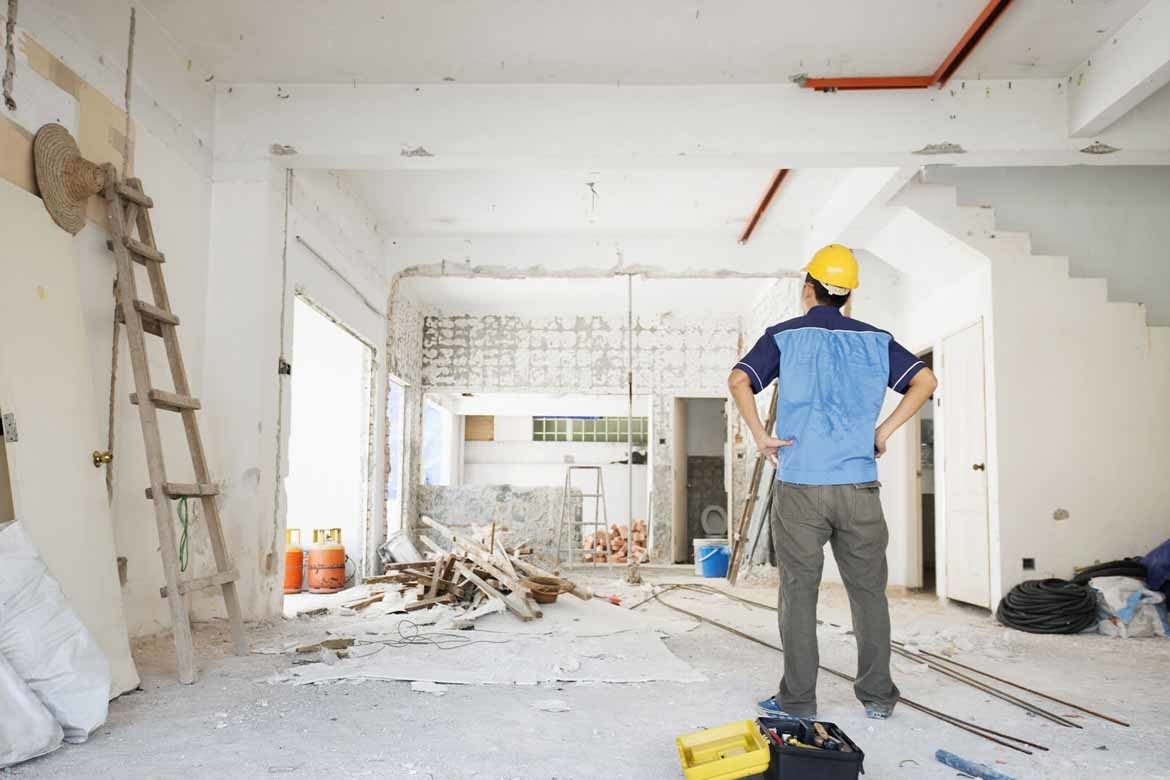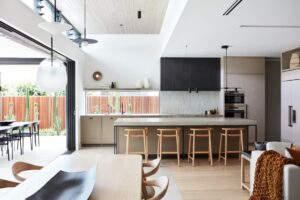How much does it cost to renovate a house?
More than half of all renovations in Australia cost in the $40,000 – $300,000 bracket. A full structural renovation can cost up to 40% of the original property’s value. However, general practice dictates that the spending limit for renovations should be capped at 10% of the property’s current value, to avoid overcapitalizing when selling the home later.
House extension cost per m2
The cost of adding a room ranges from $1,350-$2100 per m2 for a standard single-story extension. If you extension plan is to renovate a bathroom, be aware that the overall cost of adding a bathroom is quite high – sitting at $42,000-52,000.
How much does it cost to knock a wall down?
Removing a non-structural wall can be as cheap as $2,000. However large walls, utility walls, or load-bearing walls often cost around $3,500-$4500 (especially in double story homes). This is because there will need to be other arrangements made to ensure the safety of the contractors and the structural integrity of the home going forward.

What does a renovation entail?
There are a few general metrics which explain what a renovation will mean in specific instances. The three types of renovations are:
- Cosmetic – superficial changes such as painting, updating furniture, minor repairs, laying carpet etc. These are tasks which can usually be DIY renovations and as such they are the most affordable type of renovation.
- Minor – this refers to somewhat more intensive renovations which will likely need a contractor to complete, but do not impact the structure or framework of the property. Minor renovations include replacing wiring, window replacement, cabling or power access points, updating recessed light fittings and making changes to the plumbing. Minor renovations are the most common and are still fairly affordable.
- Major – major renovations involve making changes within a building which could affect the structure or framework. This includes removing or adding walls or lofts, cladding, insulation, changing the front of house, waterproofing, and other such large-scale jobs. Major renovations should always be carried out by professionals and may often need an architect or draftsman to realise the homeowner’s vision. Full house renovation costs are usually around $60-$70K but can easily become an over 100K renovation.

Another way to understand renovations is by qualifying their intensity. There are three general levels of renovation.
- Light
- Moderate
- Extensive
Each of the earlier categories can have renovations of the above intensity. For example; you could do an extensive cosmetic renovation where you update every aspect of your house from flooring to furniture without needing a contractor or replacing fixtures. Alternatively, you could do a light major renovation where you update one structural aspect of the home rather than changing the whole building.
How do I know how much a renovation will cost?
Choosing the type and intensity of your home renovation is usually a matter of budget. The average house renovation costs in Australia are around $63,000-$72,000, though it varies from state to state. Victoria has the most expensive renovations on average, closely followed by New South Wales. Western Australia has the cheapest renovations in Australia on average.
The cost of renovating a house will depend on
- Location of the house
- Size of the house
- Current value of the house
- Type of renovation (cosmetic, minor, major)
- Intensity of renovation (light, moderate, extensive)
- Contractors required for the renovation
- House accessibility
- Materials involved
- Area of the house to be renovated (the cost to renovate a kitchen is very different to bedroom, bathroom, living room)
- Length of the renovation (time)
- New vs old house renovation
- State of the house – the average cost to rebuild a house is upwards of $270,000K for a standard three bedroom
The type of renovation and the cost you should take on will also be determined by your intentions for the house. If renovating house for sale, you should spend as little as possible while still maximizing the home’s resale value. Renovations should be conscious of what adds value to a house, such as reflooring, rendering, or even just repainting.
Many of these factors are unfortunately out of your control. However, there are a few strategies you can employ to make sure that your renovation is completed in a cost-conscious way. Here is an overview of how to renovate a house while keeping costs down.
1. Be as involved as possible

One of the best ways to cut costs is just to be conscious of everything that you are paying for throughout the process. This will help you see when there are small jobs that you can achieve by yourself. It will also make sure that you are not surprised by any costs down the line. If you really want to cut costs, you should DIY every job that you can safely carry out.
2. Start planning early

Devising a budget early on is crucial to being effective in cost management. Being aware of your budget at all times during the planning stages is the most effective way to ensure that you don’t overextend yourself by planning an overly ambitious renovation. You can consult this cost of renovations calculator to get renovation estimates for your specific project.
3. Keep your options open

Obtaining quotes from multiple contractors will ensure that you are getting a reasonable fee and help inform your budget planning. Make sure that you compare prices for everything from installation to materials – even a small difference can go a long way towards reducing the overall costs.
4. Plan for the unexpected

Surprise costs are a normal part of any home improvement project. You need to make sure that you have enough set aside to deal with any potential problems. One very common occurrence is the house reno running longer than expected – make sure that you have plans in place for where to stay if your home is still not ready after the projected end date.
Why do costs vary?
Renovation costs are fickle and subject to many variations depending on a range of factors such as which city you live in and the age of your home. For an overview of each factor and a breakdown of renovation costs by room, see here. For a before and after of complete structural renovations and their budget, see here.







